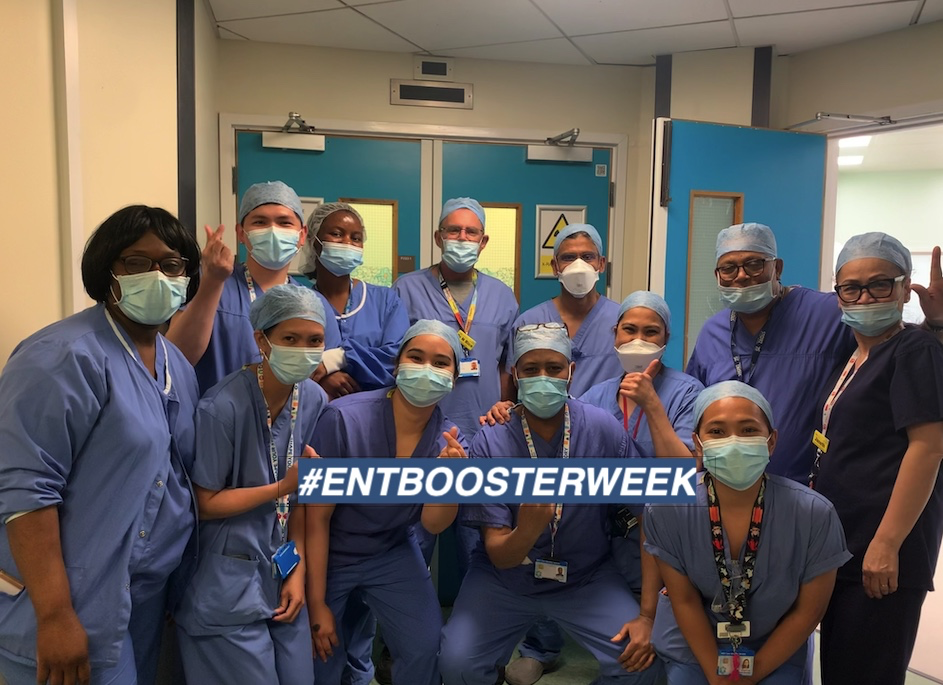Lost theatre slots to help reduce backlog in ear, nose and throat surgery

In response to the pandemic, planned surgeries were cancelled to help with the increase in Covid-19 cases. Because of this, some patients have been waiting for their surgery for more than a year or two. Many of those currently waiting are children or young people in need of ear, nose or throat (ENT) surgery.
In an effort to get back on track we have developed several strategies to help us recover, one of which has been dubbed the ‘ENT booster week’, which aims to significantly expand the number of ENT surgeries carried out over one week – in this case the week commencing 21 March.
“We have been able to generate extra surgery theatre sessions by proactively seeking out unused surgery slots within other specialities. What can seem like a small change to our usual processes can have quite a big impact on outcomes and our overall aim to get patients seen quicker by creating more capacity,” Neil Bourke, Divisional Manager, Surgery.
Unused surgery sessions can become available for a number of reasons. Surgery lists are put together well in advance and during this planning phase absences can be identified and mitigated where possible. However, if it happens that a member of the team is unavailable the list may not be able to go ahead, which means the theatre becomes free. These ‘lost’ slots can then be offered to other teams to use – by identifying these slots we have been able to expand capacity for ENT surgery.
And the improvements don’t stop here. This initiative has also influenced the reopening of our paediatric surgical ward to help provide the extra capacity needed – these were previously closed due to the pandemic.
“The opening of our paediatric surgical unit has been the highlight of the run up to booster week. After being closed for nearly two years we will be able to go back to our pre-pandemic levels of paediatric activity.” – Ms Sonna Ifeacho, ENT Clinical lead.
We have also been able to resume use of our back-up lists that were stood down due to isolation rules – now we can use lateral flow tests on the day which allow us to have patients on standby who can come in for their surgery with little notice. This is best practice to ensure that surgery lists are fully utilised even when we experience unplanned cancellations on the day.
The “ENT booster week” has also been a great opportunity to improve our prescribing methods. The pharmacy team is now working to standardise and formalise the medication required to discharge ENT patients. This will help patients get home more quickly as they won’t need to wait for the drugs to be prescribed.
This has been a huge team effort and thank you to all those that have been working hard in advance of this week. From the scheduler, to the anaesthetist, to the surgeon –there are many pieces to this puzzle that have to fit together to help reach the common goal and we are optimistic that this week will bring real benefit to our patients.
If successful, we will work towards having a booster week run every six weeks and expand the same principles to other specialties.
WeImprove is our distinctive approach to quality improvement. It is putting improvement at the heart of everything we do.

